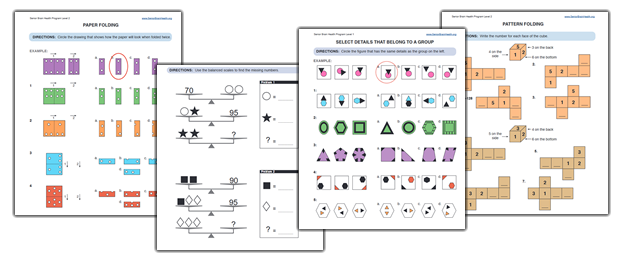The ACTIVE (Advanced Cognitive Training for Independent and Vital Elderly) Study is the largest research project ever conducted on cognitive training in older adults. Sponsored by the National Institutes of Health and conducted across six academic research centers—including Johns Hopkins University, Penn State, and the University of Alabama—the study aimed to determine whether different types of cognitive training could improve mental abilities in older adults. With over 2,800 participants aged 65 and older, this landmark study provides valuable insights into how cognitive training can positively impact brain health as we age.
Study Design and Methods
The ACTIVE Study evaluated three forms of cognitive training: memory, reasoning, and speed of processing. Each of the participants trained for 10 hours over five weeks, and about half of them received additional "booster" training one and three years after the initial training period. Participants were then monitored for up to 10 years to assess the long-term effects of their training.
Participants were randomly assigned to one of the three cognitive training groups or to a control group that did not receive any cognitive training. This randomized, controlled study design ensured that the improvements seen in the training groups were directly linked to the interventions rather than external factors.
Key Findings of the ACTIVE Study
The ACTIVE Study revealed that cognitive training can significantly improve cognitive abilities in healthy older adults and that the benefits last for many years:
-
Cognitive Improvements: All training groups experienced immediate cognitive benefits. The most substantial improvements were seen in the group that trained in speed of processing, where 87% of participants showed meaningful increases in cognitive function. Reasoning training led to improvements for 74% of participants, while memory training benefitted 26%.
-
Enhanced Everyday Function: Speed-of-processing training (Double Decision) not only improved cognitive abilities but also provided real-world benefits. Participants who trained in this group saw a 35% reduction in the risk of serious declines in health-related quality of life and a 48% reduction in the risk of at-fault car crashes. Furthermore, these participants demonstrated sustained improvements in their ability to perform daily activities independently, with benefits lasting up to 10 years after training.
-
Long-Term Benefits: Unlike other interventions, the effects of the speed-of-processing training lasted for a decade without continuous practice. Participants who underwent booster training experienced additional gains, including improved speed in everyday tasks, such as reading or finding a phone number.
Importance of Randomization and Control
The design of the ACTIVE Study was critical in ensuring reliable results. By randomly assigning participants to groups, controlling for outside factors, and blinding the researchers to group assignments, the study provided high-quality evidence that cognitive training can benefit seniors. Moreover, by using standardized outcome measures, the study allows for consistent and generalizable results across different populations and settings.
Evidence for Cognitive Training Programs
The ACTIVE Study proves that cognitive training can have profound, lasting impacts on older adults’ lives. While all three forms of training (memory, reasoning, and speed of processing) offered benefits, speed-of-processing training (Double Decision) stood out for its ability to protect against cognitive decline and improve functional independence. These findings underscore the importance of incorporating cognitive training into daily routines for seniors seeking to maintain cognitive health and quality of life.
How SeniorBrainHealth.org Supports ACTIVE Study Findings
At SeniorBrainHealth.org, our Senior Brain Health Program aligns with the ACTIVE Study's principles by offering a variety of brain training activities that promote reasoning, problem-solving, and speed of processing. Our carefully designed workbooks provide engaging exercises that seniors can use individually or in group settings, ensuring they receive the cognitive benefits demonstrated by the ACTIVE Study.
By incorporating these activities into daily routines, seniors and caregivers can help maintain mental sharpness and delay cognitive decline. Whether in a retirement community, memory care unit, or at home, SeniorBrainHealth.org offers tools to help seniors stay mentally active and improve their quality of life.
For more information sign up for our sampler PDF. Empower yourself or your loved ones with the tools to maintain cognitive health as you age.
Citations:
- J. W. Willis, et al., "Long-term effects of cognitive training on everyday functional outcomes in older adults: The ACTIVE Study," Journal of the American Medical Association, 2006.
- K. Ball, et al., "Effects of cognitive training interventions with older adults: A randomized controlled trial," JAMA, 2002.
- "The ACTIVE Cognitive Training Trial: Overview and Findings," Journal of Gerontology, 2013.




